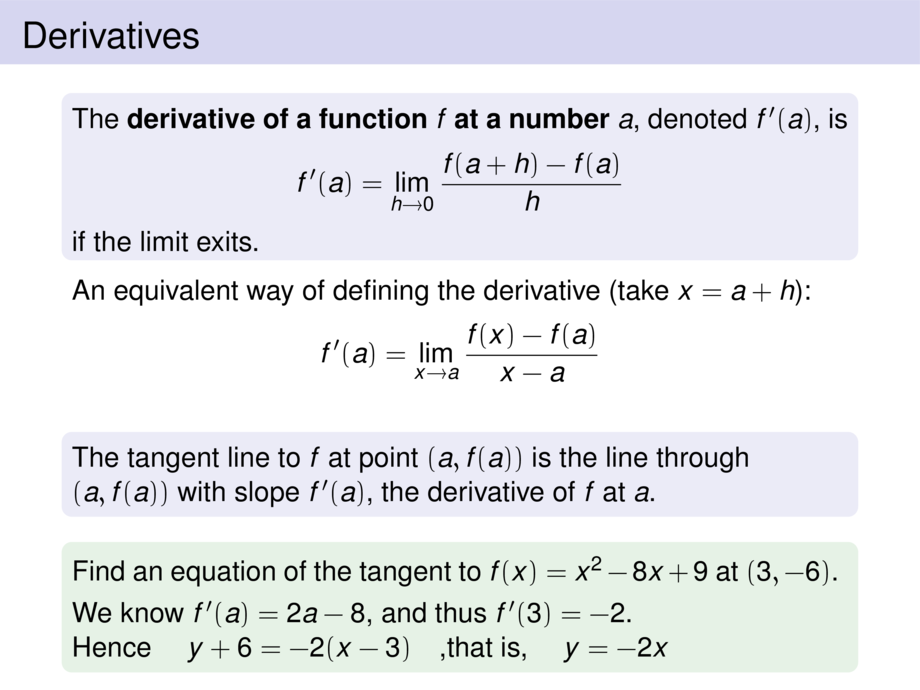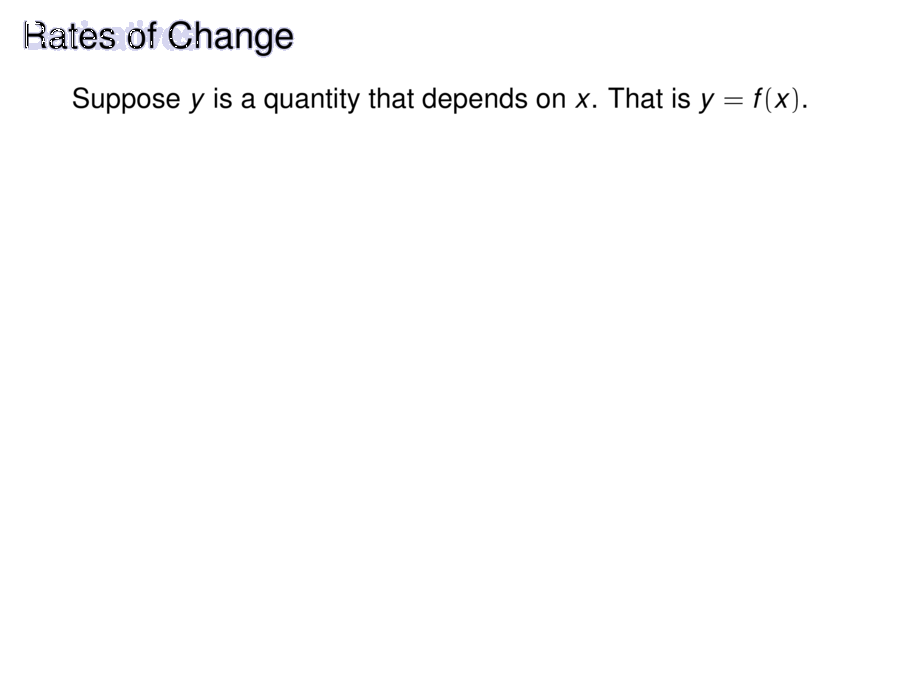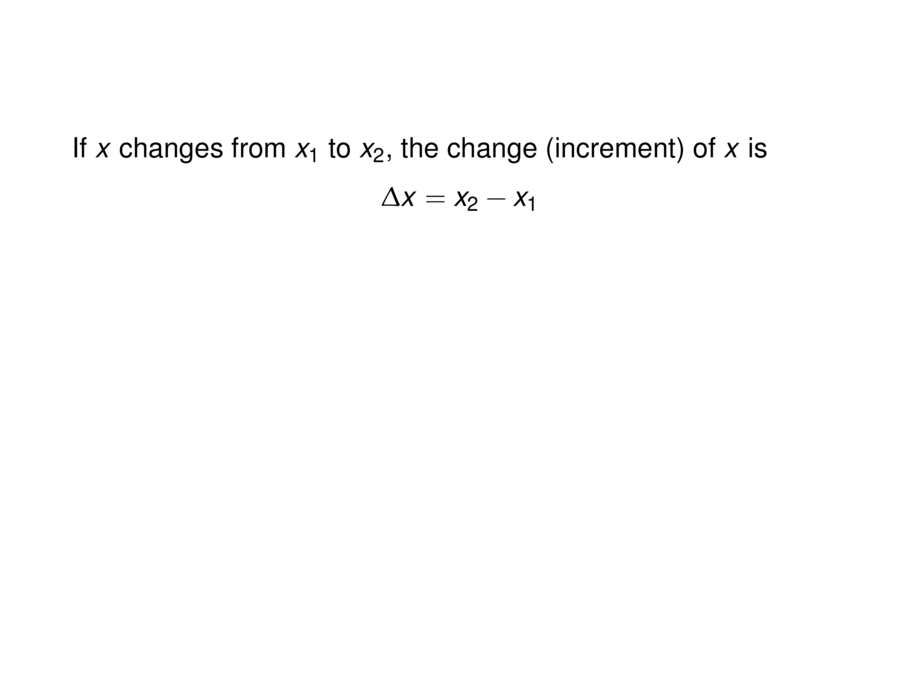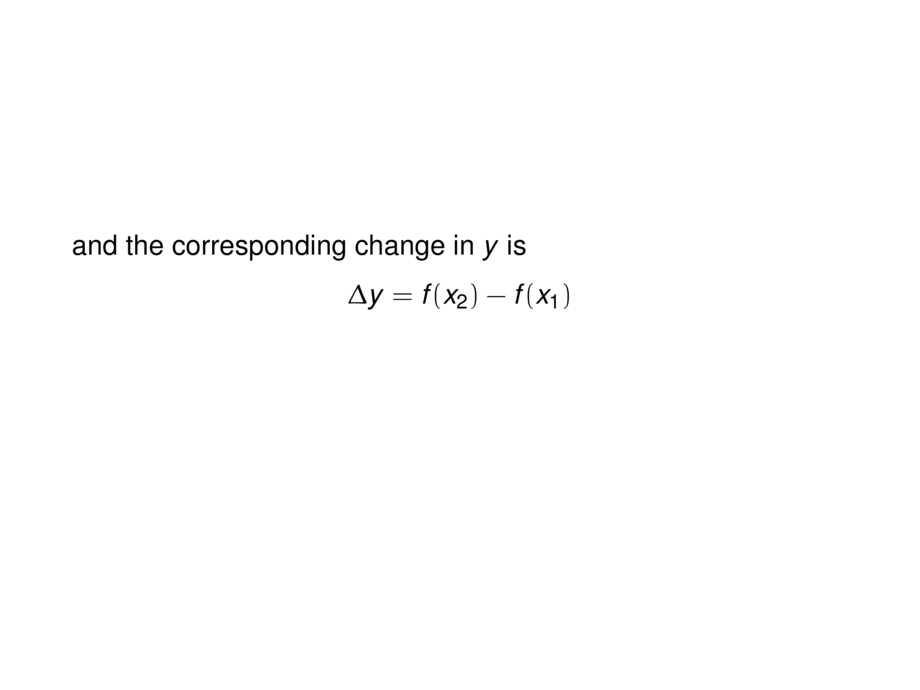



































































































56/74
\begin{frame}
\frametitle{Rates of Change}
Suppose $y$ is a quantity that depends on $x$. That is $y = f(x)$.
\pause\medskip
If $x$ changes from $x_1$ to $x_2$, the change (increment) of $x$ is
\begin{talign}
\Delta x = x_2 - x_1
\end{talign}
\pause
and the corresponding change in $y$ is
\begin{talign}
\Delta y = f(x_2) - f(x_1)
\end{talign}
\pause
The \emph{average rate of change over the interval $[x_1,x_2]$} is
\begin{talign}
\frac{\Delta y}{\Delta x} = \frac{f(x_2) - f(x_1) }{x_2 - x_1}
\end{talign}
\pause
The \emph{instantaneous rate of change}
by letting $\Delta x$ go to $0$:
\begin{talign}
\text{instantaneous rate of change} \;=\;
\lim_{\Delta x \to 0} \frac{\Delta y}{\Delta x} \;=\;
\lim_{x_2 \to x_1} \frac{f(x_2) - f(x_1) }{x_2 - x_1}
\end{talign}\vspace{-2ex}
\pause
\begin{alertblock}{}
This is the derivative $f'(x_1)$!
\end{alertblock}
\pause
(Note that large derivative $f'(x_1)$ means rapid change.)
\end{frame}

